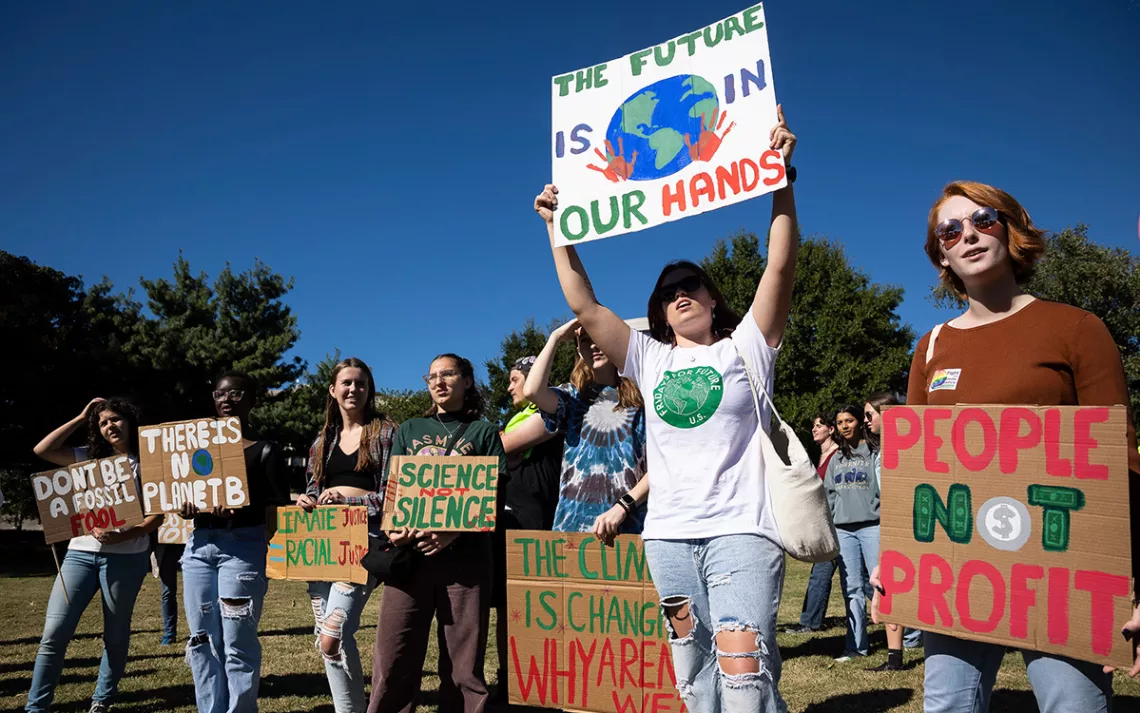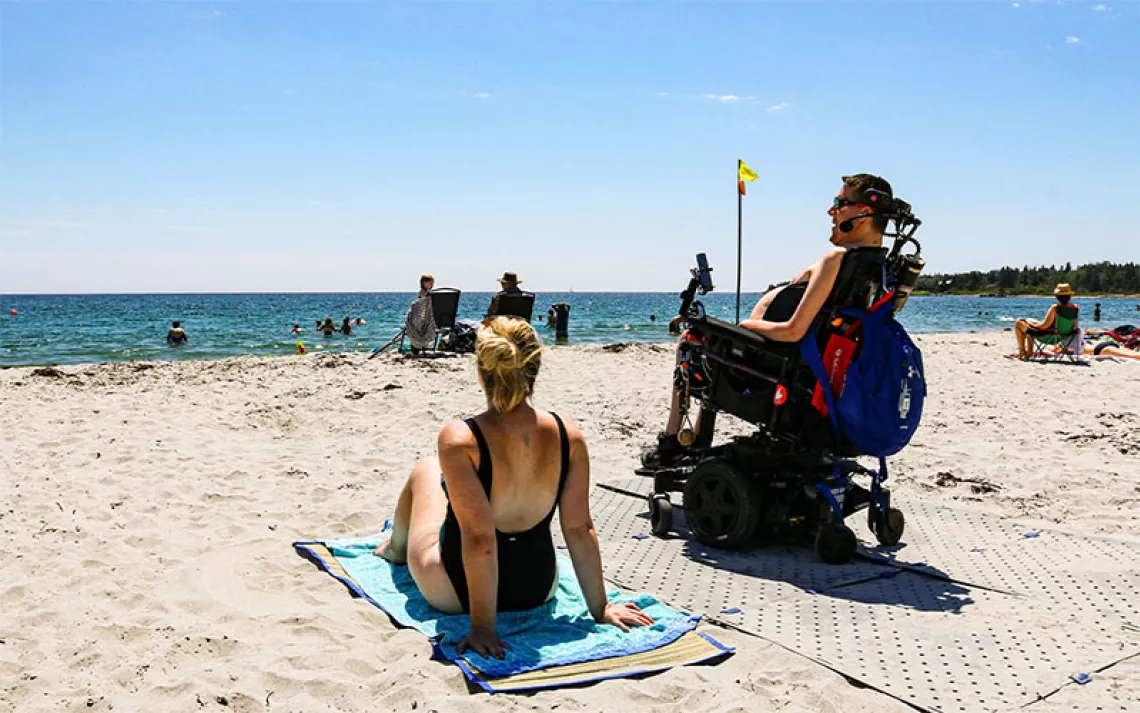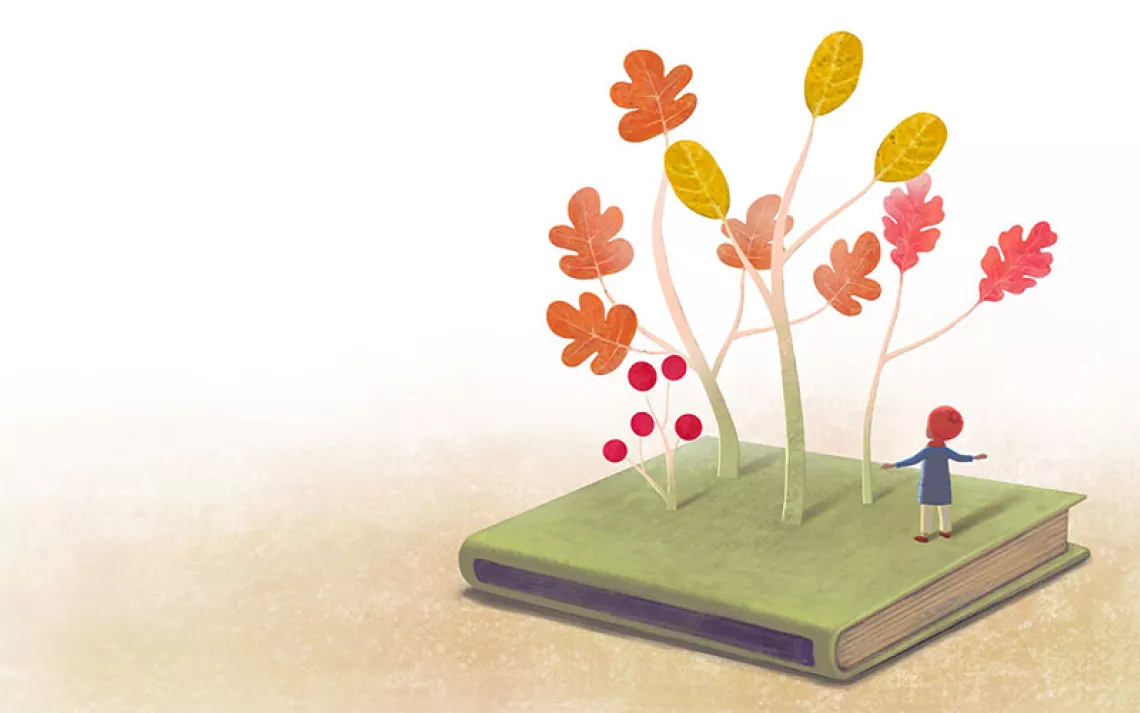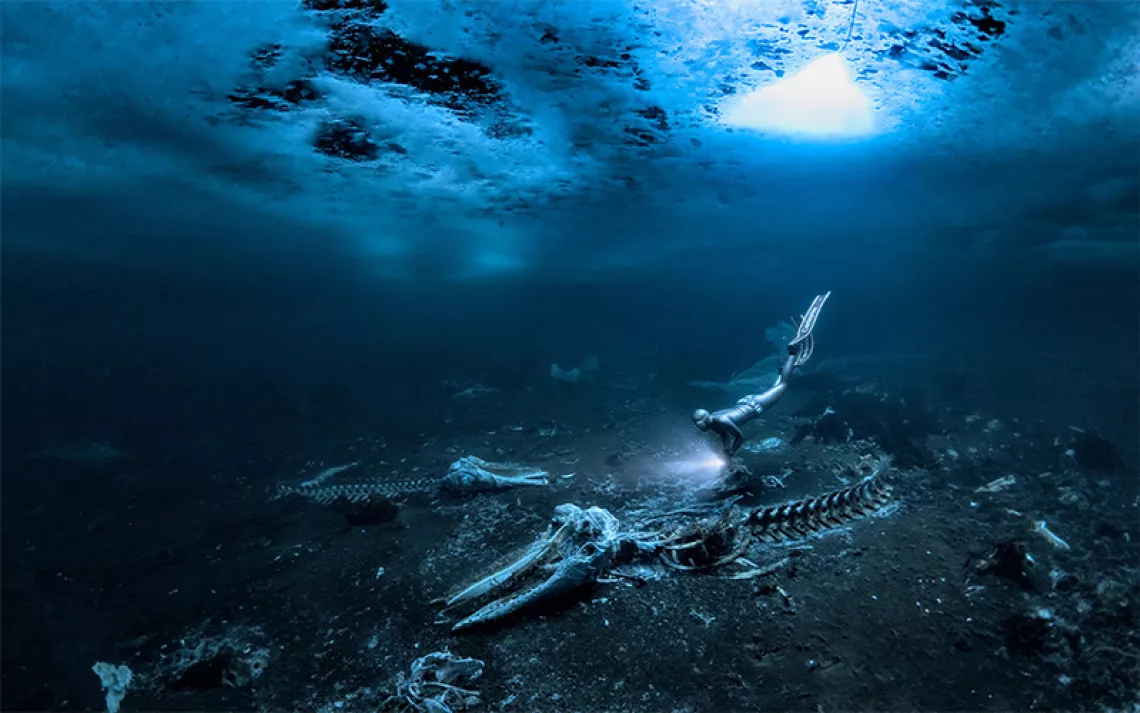Let's Return Earth Day to Its Revolutionary Past
Youth activist Jamie Margolin hated Earth Day, until she learned more about it

Youth climate activists take part in a Fridays for Future rally near the US Capitol in 2022. | Photo by Francis Chung/E&E News/POLITICO via AP Images
Editor's note: In 2020, on the 50th anniversary of the first Earth Day, we asked Jamie Margolin, founder of the youth climate group Zero Hour, to share some thoughts about how to revitalize the unofficial environmental holiday. Her thoughts are just as wise today as they were three years ago, and so we're republishing her essay to mark Earth Day 2023.
I hate Earth Day.
Or at least the modern-day, Hallmark-card Earth Day I grew up with. People would talk about recycling and being "nice" to the earth. My classroom walls were plastered with drawings of the planet with a smiley face on it and cheery slogans about using fewer paper towels.
I would scroll through articles about how we are living through a mass extinction and then turn on the local news to see the anchors doing fun Earth Day arts and crafts with recycled materials instead of talking about the existential crisis we are facing and how it affects local communities.
It was as if one day a year everyone said, "Let's do the absolute bare minimum for the planet" and then went on with business as usual, feeling good about themselves, when I knew that what needed to happen to save my future was revolutionary, systematic change.
I grew up in Seattle, nicknamed the Emerald City because it is so green—full of natural beauty that serves as a constant reminder of what we must fight to protect. On my commute to school, I would look out the window and see the mountains and the ocean. But lately, at the start of each school year that view has been blocked by smog from wildfires, coating the city in an apocalyptic haze.
I started suffering from anxiety about climate change when I was 11. Climate anxiety for me means sleepless nights, panic attacks about what the future holds, and bouts of nihilism, when it's hard to motivate myself to do anything because there's a little voice in my head that says, "It's not like anything you do matters. Life on Earth is coming to an end."
After the 2016 election, I threw myself into climate activism. That's when I started to learn the history of Earth Day. Older environmentalists told me what the day was really about: a revolutionary event that 20 million people—roughly 10 percent of the US population at the time—participated in. I was not alive back then, but I see the revolutionary spirit of that day now in movements like Zero Hour, the youth-driven climate justice organization I cofounded in 2017, which has led marches all over the world and continues to be a leader in the youth climate justice movement.
In 2020, it's time to bring back the revolutionary spirit of Earth Day. No more greenwashing, no more corporations using the holiday as an excuse to make a few half-assed tweaks here and there and pretend that those are going to substitute for the radical change actually needed for us to save all life on Earth.
In fact, the whole notion of environmentalism has to change. No more can it be something that people take on as an act of charity. True environmentalism is about overhauling the systems that caused climate change in the first place. It's about holding accountable the corporations responsible for climate disaster.
On Earth Day 2020, everyone all over the world needs to hit the streets in massive numbers. Tens of millions. This Earth Day, we need a mobilization so big that no one can ignore us, so big that the world will literally stop for climate action and environmental justice.
If we mobilize on the 50th anniversary of this historic day like we did for the first Earth Day, then I will be proud to report that I no longer hate this annual event. Half a century after the first Earth Day, it's time for us to start acting like it's zero hour to respond to climate change—because it is.
Will I see you in the streets?
This article appeared in the March/April 2020 edition with the headline "Let's Return Earth Day to Its Revolutionary Past."
More Earth Day essays:
 The Magazine of The Sierra Club
The Magazine of The Sierra Club



